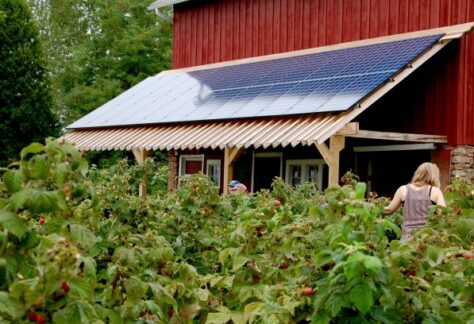I have a vacation rental…how can I control my expenses?
So you have a second home and you’ve decided to manage it as a short-term vacation rental listing it on websites like Airbnb or Vrbo, rather than leasing to long term renters. good for you! Owning and managing vacation rentals can be a profitable and enjoyable business venture. However, as in any business, one of the keys to success in running a vacation rental business is controlling the costs.
In order for your vacation rental to be a positive investment, you need to watch expenses closely. However, there is a fine line between keeping costs down while simultaneously reinvesting in your asset to ensure it is well maintained and well appointed so that guests have wonderful experiences and leave positive reviews. The reviews that past guests leave regarding their experience in your vacation rental can make or break your business, so this should be top of mind every time you incur costs for your rental. A TripAdvisor study found travelers are 80% more likely to book a vacation rental that already has reviews.
There are different costs that need to be addressed when thinking about a vacation rental. The main costs are:
- mortgage
- utilities
- setup
- distribution and marketing
- maintenance and cleaning
What Are the Best Ways to Keep These Costs as Low as Possible?
Mortgage
A mortgage is often the largest expense associated with a vacation rental. There’s not a ton you can do to get this expense down, but one thing you can do and should look into, especially now, is refinancing your property. In some cases this isn’t feasible, of course. But interest rates are currently at an all-time low and refinancing may just save you a few hundred dollars per month, meaning one less room night needed per month in order to cover costs.
Utilities
Just like a primary residence, vacation rentals have utility costs that need to be covered. Gas and electricity are, of course, standard utilities for most homes. But don’t forget high speed internet (guests want the fastest speeds available), cable TV (they’re on vacation and want all the channels), water, etc. I have one rental with a rather large lawn and my water bill during summer months can be up to $300/month! At $199/night I need to rent 1 ½ nights just to cover the water bill.
How can I reduce my utility costs?
Invest in smart home thermostats and sprinkler systems. While these both require initial investments for the technology/hardware, they are sure to save you money in the medium-term. I find that guests turn the heat up way too high in the winter and the A/C way too low in the summer. With smart technology I can turn these up/down/off/on remotely when guests check out and before guests check in to ensure I’m not paying to heat/cool when nobody is in the home.
Vacation Rental Setup
Unlike long term rentals, short term require a fully furnished home which can be costly. Beds, dressers, tables, chairs, kitchenware, couches, TVs, etc…it can really add up.
How can I reduce my setup costs?
Too many people furnish their vacation rental as they would their primary residence. It’s important to remember that every dollar you spend on furnishings is going to have to be recouped, so the trick is to appoint it well with the least expense. How? Furnish your property with nice, comfortable, but used, furnishings. Craigslist, Facebook Marketplace and other classifieds are great places to find good deals on furnishings for your vacation rental that guests will be happy with and won’t break your wallet. I hate to say it, but guests are going to be hard on your furnishings, so buying nice but used is the way to go. I find that I can buy good quality, used furnishings for less than half the cost of new, which adds up to thousands of dollars in savings. Last thing on the subject of furnishings; don’t over-clutter your home. I see VRs with lots of knick-knacks meant to be decorative. Those knick knacks add to the initial cost, to the cleaning costs, and increase possibility of things being broken, yet add little value to a stay. Instead, spend the money on kitchenware. People love a well-stocked kitchen.
Distribution and Marketing Costs
So now you have your vacation rental set up to receive guests, but how do you attract customers? Getting customers costs money! If you use third party websites, they will charge you for access to their customer base. If you want to attract guests directly without using third parties, you’ll spend money on a website and traffic.
How can I ensure my distribution and marketing costs are set for maximum ROI?
The good news here is that listing on sites like Airbnb and VRBO is free, and they take a very small fee for each booking. Conversely, building your own website and then paying for traffic to that site can be very costly. If you only have 1 or 2 properties, using short term vacation rental sites is going to be your most cost effective way of getting customers in your door. Use these sites for customer acquisition, and then set up a regular mailing list to all past customers, encouraging them to return and book directly with you when they do. This way, you are using the lowest cost-of-acquisition channels to get new customers, and you’re using the lowest cost marketing methods to get them to book into perpetuity. For more on distribution, see our blog, “Where should I list my vacation rental?”
Maintenance and Cleaning
There are only three sure things in the life of a vacation rental owner: death, taxes, and that maintenance issues will occur. Door locks will break, furnaces will go out, pipes will leak, drains will clog…there’s just no end to the types of issues that will come up. And it seems that these issues always happen at the least convenient times. It seems I’m either on vacation or it’s midnight when things go wrong.
Cleaning is an area where it’s worth spending the money to have a good, reliable service. One missed hair or one dirty plate in the cupboard can get you a bad review that will cost you thousands of dollars, so this is something that needs to be monitored closely.
One Last Important Item to Think About
This is a business and just like any business that wants to grow, you need to reinvest in it. Take a percentage of your earnings and set them aside for:
- Those emergencies that come up like a clogged shower or furnace that just went out. When a guest calls in the middle of summer when it’s 100 degrees to tell you the A/C isn’t working, you can’t put off getting it repaired until your next paycheck! Ensure you have funds set aside for emergency repairs.
- Upgrades. You may have appointed your home really well when you began renting your home, but if you are successful and get lots of bookings, you will notice a lot of wear-and-tear. Carpets will get worn, chairs will get broken. And you’ll get reviews saying “would be nice to have an outdoor eating area” or you’ll get inquiries saying “I have a pet…is your backyard fenced?” Listen to the feedback and requests you get from past and potential guests and use that to invest in and prioritize upgrades to your home. You can advertise these upgrades in your listing and it will give guests confidence that you take pride in your product which will lead to more bookings.
Once you have established a budget with all of these costs included, and you’ve determined what you think you can charge on a nightly basis (based on what your competitors are charging for similar properties) you can then get a reasonable idea of how many nights you need to rent each month in order to cover those costs. You can then subtract that number from the average occupancy rates for your market for a reasonable idea of your profits. Here’s an example:
Estimate Monthly Costs | $2,000 |
Estimated Average Daily Rate | $200 |
Nights Needed to Break Even | 10 |
Average Occupancy Rates for my Market | 50% (15 nights) |
Estimated Profit | $1,000 |
It is important to track your expenses on a monthly basis, and on a yearly basis, to see how your business is doing and if you’re growing each year. Here is an example of a simple worksheet you can use to track expenses:

Content Contributed By:

Dustin Warr
Dustin Warr has been a principal in the online travel industry for 17 years, managing hotel chain partnerships for Expedia, overseeing the travel vertical at daily deal giant, LivingSocial, and most recently serving as Vice President of Sales and Market Management for RedAwning Group, the leader in online marketing of vacation rentals across the globe. He currently owns SeaSalt Vacation Homes based in Salt Lake City, UT. Dustin holds a Master’s of Business Administration from Georgetown University and a BA of Political Science and Communications from the University of Utah.





